Latest News
 Guest columnist Gene Stamell: We know what we know
Guest columnist Gene Stamell: We know what we know
 No contests on ballot for Willisamsburg election
No contests on ballot for Willisamsburg election
 Contested races shaping up in Chesterfield
Contested races shaping up in Chesterfield

Granby Bow and Gun Club says stray bullets that hit homes in Belchertown did not come from its range
BELCHERTOWN — The president of the Granby Bow and Gun Club insists that stray bullets that hit two homes and a shed in the Turkey Hill area of town did not originate from the club’s long range.Club President Ryan Downing read a statement at the...

Change in federal drug classification could help cannabis shops
NORTHAMPTON — In the wake of the Justice Department’s proposal to reclassify cannabis as a less dangerous drug, dispensary owners say the change would help their business, especially on taxes.“The immediate impact would be for the government to treat...
Most Read
 A Waterfront revival: Two years after buying closed tavern, Holyoke couple set to open new event venue
A Waterfront revival: Two years after buying closed tavern, Holyoke couple set to open new event venue
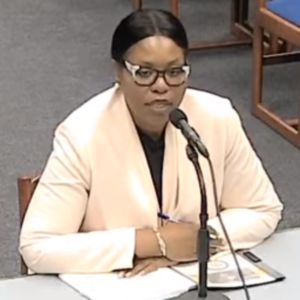 Island superintendent picked to lead Amherst-Pelham region schools
Island superintendent picked to lead Amherst-Pelham region schools
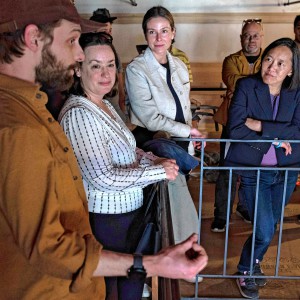 Music key to Northampton’s downtown revival: State’s top economic development leader tours city
Music key to Northampton’s downtown revival: State’s top economic development leader tours city
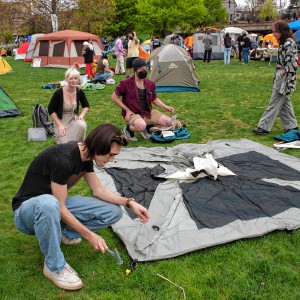 Pro-Palestinian encampment disperses at UMass, but protests continue
Pro-Palestinian encampment disperses at UMass, but protests continue
 Area property deed transfers, May 2
Area property deed transfers, May 2
 Amherst council hears call to scale back Jones work
Amherst council hears call to scale back Jones work
Editors Picks
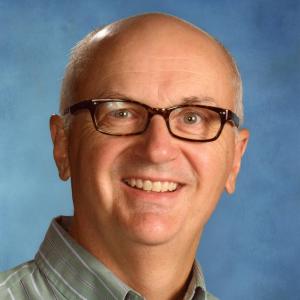 A Look Back, May 2
A Look Back, May 2
 Photos: Special connection
Photos: Special connection
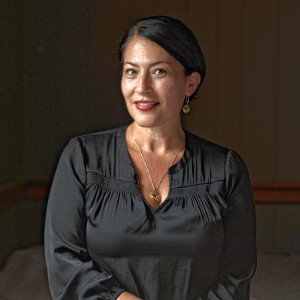 The power of poetry: U.S. Poet Laureate Ada Limón to speak at Smith College
The power of poetry: U.S. Poet Laureate Ada Limón to speak at Smith College
 The Beat Goes On: Album release shows by Barnstar! and Lisa Bastoni, a Young@Heart Chorus concert with new special guests, and more
The Beat Goes On: Album release shows by Barnstar! and Lisa Bastoni, a Young@Heart Chorus concert with new special guests, and more
Sports

Boys tennis: Sixth grader Lee Ferguson key cog in PVCICS’ win over Belchertown, undefeated start to the season (PHOTOS)
BELCHERTOWN — Pioneer Valley Chinese Immersion Charter School boys tennis coach Mike Locher has a Star Wars character assigned to each player on his team.After every match, he sends his players a game recap, along with a YouTube video of their Star...
 South Hadley boys volleyball team making strides in first season as program
South Hadley boys volleyball team making strides in first season as program
 2024 Gazette Boys Swimmer of the Year: Luke Giguere, Belchertown
2024 Gazette Boys Swimmer of the Year: Luke Giguere, Belchertown
Opinion

Jennifer Dieringer: Budget must serve whole city
I am the parent of a Northampton High School student. I have been fortunate enough to have had the capacity and time to be engaged in the schools my son has attended, serving on the PTO since he was at Bridge Street Elementary School. (Pro tip: If you...
 Nancy E. Grove: Landlines are the best
Nancy E. Grove: Landlines are the best
 Sage Cooper-Clermont: A well-deserved thank you for chain of help
Sage Cooper-Clermont: A well-deserved thank you for chain of help
 Ken Rosenthal: Time to change direction on Jones Library
Ken Rosenthal: Time to change direction on Jones Library
 Joshua Singer: Friends of the trails could use a hand
Joshua Singer: Friends of the trails could use a hand

Business

Area property deed transfers, May 2
AMHERST Faheem Ibrahim Lt and Faheem Ibrahim to Nan Zhao and Zhihong Ni, 16 Arbor Way, $738,000 Richard B. Spurgin to Yg Pleasant LLC, East Pleasant Street, Lot 1, $218,000 Richard B. Spurgin to Yg Pleasant LLC, East Pleasant Street, Lot 2,...
Arts & Life

Speaking of Nature: Bird of my dreams, it’s you: Spotting a White-tailed Tropicbird on our cruise in Bermuda
It was the morning of April 16 and I was up early. It seems to be impossible for me to sleep late at this time of year because I am so excited about seeing the first birds of the season, but this particular morning was a little different. It was the...
Obituaries
 Eli Knapp Abrams
Eli Knapp Abrams
Florence, MA - Eli Knapp Abrams, of Florence Massachusetts, passed away suddenly on Monday, April 22nd, 2024 in Goshen, MA. Eli was born in Beverly, MA on March 19th, 2003. He is the cherished son of Jennifer and Maury Abrams, and belov... remainder of obit for Eli Knapp Abrams
 Andre Nolet
Andre Nolet
Holyoke, MA - Holyoke- Andre E. Nolet, a resident of Holyoke, passed away at home on April 28, 2024 at the age of 74. One of six children to the late J. Leo Nolet and Rose (Roy) Harker, Andre was born in Holyoke on October 6, 1949. He a... remainder of obit for Andre Nolet
 Marion Shea
Marion Shea
(1919 - 2024) NORTHAMPTON, MA - Marion Catherine (Osepowicz) Shea, of Northampton passed away at her home peacefully with family members and support by the nurses from the Hospice of the Fisher Home, Amherst, Massachusetts on Saturday, ... remainder of obit for Marion Shea
 Ronald O'brien
Ronald O'brien
Northampton, MA - Ronald Paul O'Brien, 76, passed away peacefully at Cooley Dickinson Hospital after a brief illness. Born in St. Stephens New Brunswick, Canada, the O'Briens immigrated to the United States where Ronald grew up and atte... remainder of obit for Ronald O'brien

 Services being held Thursday for Greenfield homicide victim
Services being held Thursday for Greenfield homicide victim
 Former Chicopee superintendent sentenced to year probation for lying to FBI
Former Chicopee superintendent sentenced to year probation for lying to FBI
 Two-time Pulitzer Prize-winning author Colson Whitehead to speak at UMass commencement
Two-time Pulitzer Prize-winning author Colson Whitehead to speak at UMass commencement
 Healey expects $16B return on climate tech investment
Healey expects $16B return on climate tech investment
 Glitz, glamour and all that jazz: ‘Chicago’ takes stage at Easthampton High starting Thursday
Glitz, glamour and all that jazz: ‘Chicago’ takes stage at Easthampton High starting Thursday
 Girls lacrosse: Amherst stays undefeated, runs away from Granby for second win in as many days (PHOTOS)
Girls lacrosse: Amherst stays undefeated, runs away from Granby for second win in as many days (PHOTOS) Softball: Ella Schaeffer’s walk-off hit lifts South Hadley to 1-0 extra-inning win over Easthampton
Softball: Ella Schaeffer’s walk-off hit lifts South Hadley to 1-0 extra-inning win over Easthampton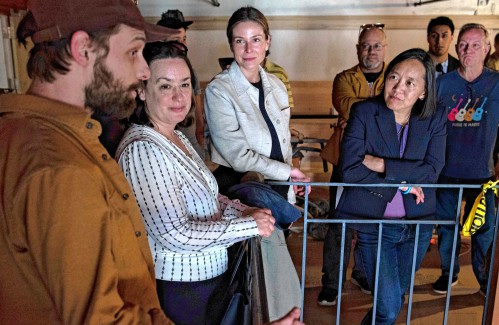 Music key to Northampton’s downtown revival: State’s top economic development leader tours city
Music key to Northampton’s downtown revival: State’s top economic development leader tours city  Locking up carbon for good: Easthampton inventor’s CO2 removal system turns biomass into biochar
Locking up carbon for good: Easthampton inventor’s CO2 removal system turns biomass into biochar Advancing water treatment: UMass startup Elateq Inc. wins state grant to deploy new technology
Advancing water treatment: UMass startup Elateq Inc. wins state grant to deploy new technology New Realtor Association CEO looks to work collaboratively to maximize housing options
New Realtor Association CEO looks to work collaboratively to maximize housing options The Iron Horse rides again: The storied Northampton club will reopen at last, May 15
The Iron Horse rides again: The storied Northampton club will reopen at last, May 15 Upon Nancy’s Floor: 33 Hawley event celebrates iconic dancers, history, and a new dance floor
Upon Nancy’s Floor: 33 Hawley event celebrates iconic dancers, history, and a new dance floor Embracing both new and old: Da Camera Singers celebrates 50 years in the best way they know how
Embracing both new and old: Da Camera Singers celebrates 50 years in the best way they know how Time to celebrate kids and books: Mass Kids Lit Fest offers a wealth of programs in Valley during Children’s Book Week
Time to celebrate kids and books: Mass Kids Lit Fest offers a wealth of programs in Valley during Children’s Book Week
